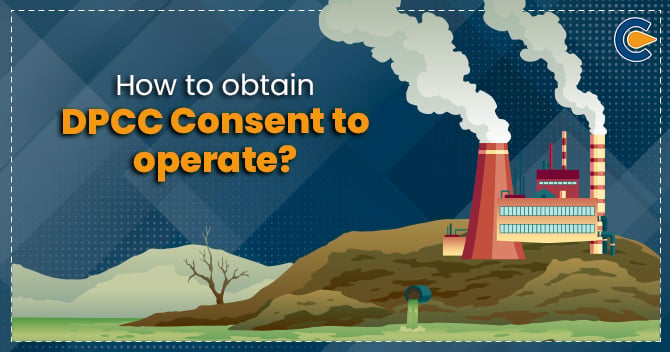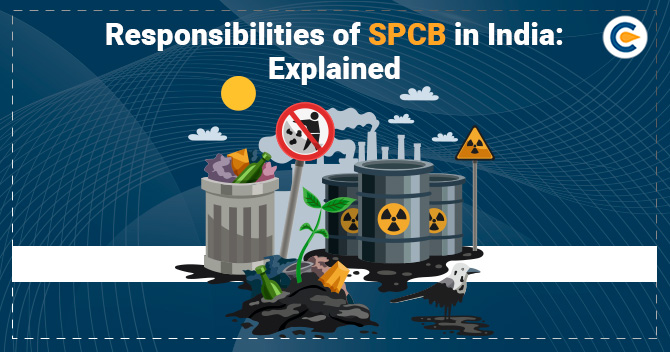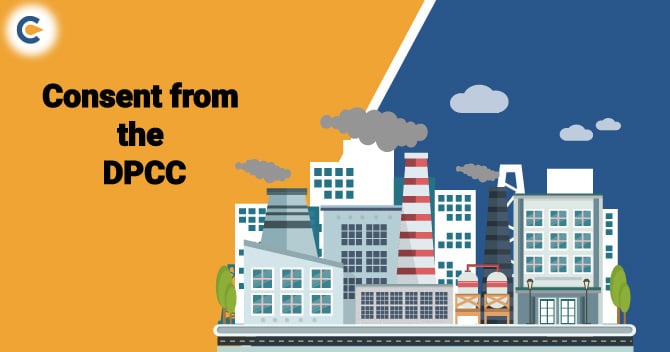Pollution of Environment is one of the major concerns that the world is dealing with, especially with the rise in industrial development and technology. With these industries being the major cause behind the gradual increase in pollution, it becomes the fundamental responsibility of any manufacturer who is establishing any industry to keep in mind the effect it will have on the environment. Therefore to oblige the manufacturer of his responsibility and protect the environment, the Environmental legislations in India, including Hazardous and Other Wastes (Management & Transboundary Movement) Rules, 2016, E-Waste (Management) Rules, 2016, Plastic Waste Management Rules, 2016 and Bio-Medical Waste Management Rules, 2016, Water (Prevention & Control of Pollution) Act, 1974 and Air (Prevention & Control of Pollution) Act, 1981 makes it mandatory for any manufacturing business to obtain Consent from State Pollution Control Committee/Board.
DPCC and its functions
DPCC or Delhi pollution Control Committee is an autonomous regulatory body established by Central Pollution Control Board under the notification dated 15 March 1991. CPCB, under the Water (Prevention & Control of Pollution) Act, 1974 and Air (Prevention & Control of Pollution) Act, 1981[1], have delegated its power and functions to DPCC, headed by Chairman also acts as a regulatory body for the implementation of environmental laws and policies of NCT of Delhi.
The main functions of DPCC include:
- Issuing of the Consent form to different manufacturing units falling under green and orange categories.
- Issuing Authorisation to health care services like hospitals, Blood Banks, Clinics etc.
- Act as an Advisory body for the Delhi Government on matters concerning air and water pollution prevention and control.
- Spread awareness on prevention, control and abatement of water and Air pollution by organising through mass media.
- Conduct research on data relating to water and Air pollution as well as Prepare and compile a technical manual and guidelines relating to the treatment of sewage and trade effluents.
Application of Consent and its types
Water Act, 1974 and the Air Act, 1981 stipulate that “any industry, operation or process or an extension and addition thereto, which likely to discharge sewerage or trade effluent into the environment or likely to emit any air pollution into the atmosphere will have to obtain the consent.”
Delhi Pollution Control Committee provide two different types of Consent, which include DPCC Consent to establish and DPCC Consent to operate.
DPCC Consent to establish
The manufacturer requires DPCC Consent to establish to start a business or enterprise stipulated mandatory under the Water Act, 1974 and the Air (Prevention & Control of Pollution) Act, 1981. To acquire the Consent to establish, the manufacturer must fill the application within the given format attaching the required document and fees,, which is then followed by Inspection.
DPCC Consent to Operate
After the industry is established along with all the machines and pollution control devices and the unit is ready to operate, the DPCC Consent to operate is required.
DPCC Consent to operate
DPCC Consent to operate is provided by the manufacturer when the industry is established as per the stipulated norms under the Water (Prevention & Control of Pollution) Act, 1974 and the Air (Prevention & Control of Pollution) Act, 1981, along with this have received Consent to establish, and the unit is ready to function.
Documents required to obtain DPCC Consent to operate
- Pan Card
- Aadhar Card
- Authorisation Letter
- Municipality or Industry license
- Factory/Trade License
- Health Trade License
- Proof of Registration of unit
- CA Letter for the total cost of the project
- Site Plan
- FSSAI Certificate (for food-related business)
- Electricity Bill
- Proof of ownership
- Water Bill
- GST certificate
Along with this Manufacturer, for Consent to operate, also have to show a Copy of the last Consent (Consent to establish), the Layout plan for the manufacturing process and the latest analysis report of solid waste effluent, hazardous waste and fuel gases.
Different Categories of Industries stipulated by DPCC
On the basis of type of work and amount of pollutant produced by the units, these are divided into different categories.
- White Category include industries which are the least polluting units and do not require a Consent certificate.
- Green includes industries with a pollution index somewhere between 21 and 40.
- Orange Category includes industries with a higher pollution index than the green category, somewhere between 41 and 59. These include industries that work with acid, batteries, electric motors, transformers etc.
- The red category includes most polluting industries emitting highly hazardous pollutants and is not allowed to operate in Delhi jurisdiction. These industries include the duel oil industry, explosive industry, automobiles, mining etc.
Industries that require DPCC Consent to operate
- Manufacturing entities
- E-Waste management entities
- Solid Waste Management industry
- Health care establishments
- Traders
- Plastic Waste Management entities
- Bio-Medical Waste management entities
Procedure to obtain DPCC Consent to operate
- The required application form is to be filled from the official site of the concerned state pollution authorities must be filled and uploaded within mandated provisions.
- Then the stipulated documents, and the fees, are to be uploaded on the official site.
- Once they are uploaded, the application is sent to the authorised personnel for revision which is then followed by personal Inspection and preparation of a detailed analysis report which is submitted to the sub-regional officer.
- At last, after this, the application is either approved or rejected.
It is beneficial to keep in mind that no proposed industry is allowed within the approved residential area stipulated by Municipal Corporation. No orange or red category industries must be established within the municipal corporation limits barring the industrial areas/zone.
Once the DPCC consent to operate is given, the certificate remains valid for a period of 5 years for the red category industries, ten years for the orange category industries and 15 years for the green category industries. For CTO, renewal is to apply through Online Consent Management & Monitoring System before the expiration of previous DPCC Consent to operate.
The Air and Water Act also states the penalty in case any industry falling into green/orange or red is operating without obtaining Consent. The penalty includes imprisonment for a term which may extend to 3 months or a fine which may extend to ten thousand rupees or with both. The manufacturer or the owner of the industry is held liable for the punishment.
Conclusion
DPCC Consent to operate serves a very important purpose for delegating responsibility to the manufacturer for protecting the environment and keeping the pollution emitted during the manufacturing process to the minimum.
Read our Article:CPCB certification For Compostable Plastic Sellers











